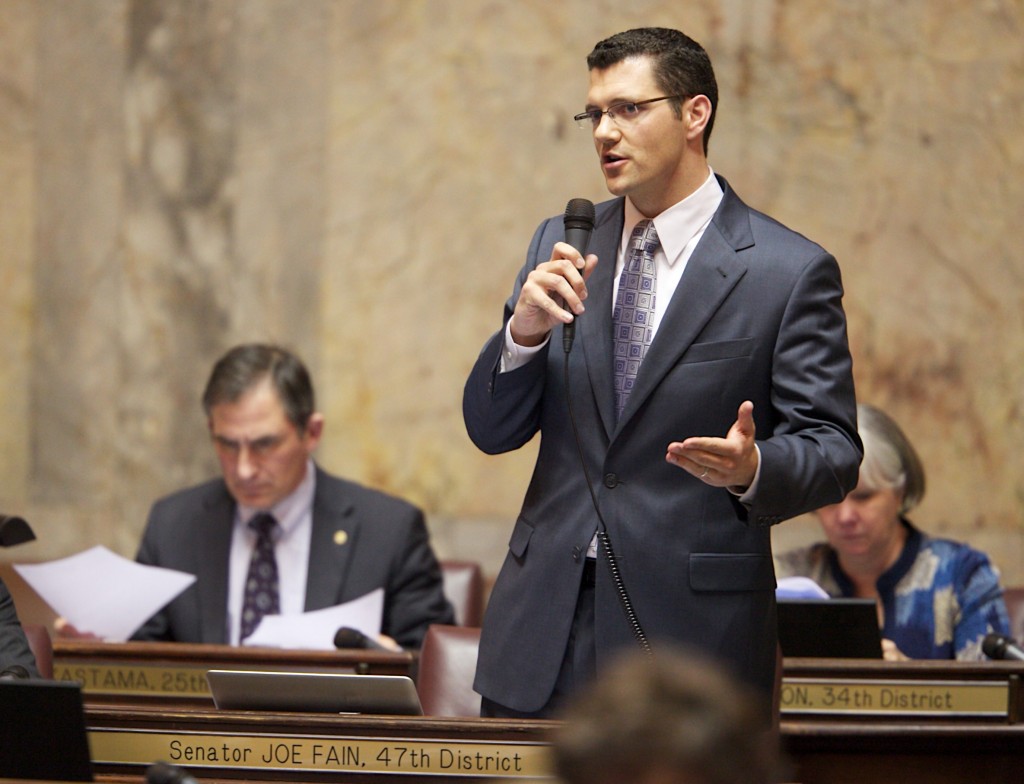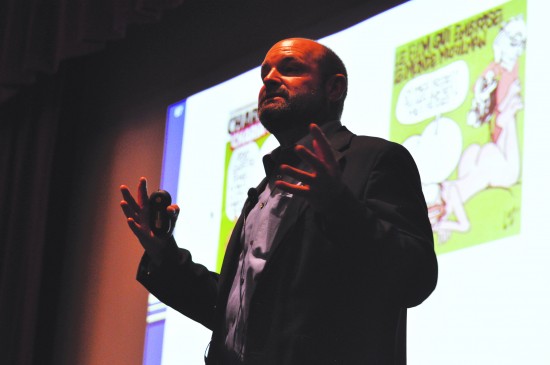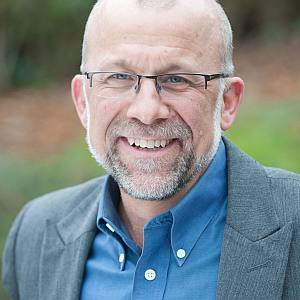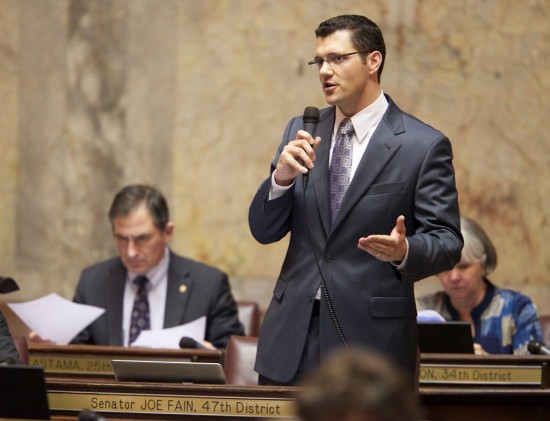
By Giovanni Roverso and Judah Breitbach
Washington State Senate bill 6233 of Jan. 13 is up for debate at the Washington State Legislature. Dubbed the “New Voices Act,” it would allow enhanced first amendment rights of free speech and press rights in school-sponsored media both at the high school level and at the higher education level.
As of Feb. 25 the bill was placed in the “X” file list, indicating the bill needs more time than is available until the end of this year’s session on Mar. 10.
According to the Senate Bill Report, it’s “modeled after legislation in North Dakota, which is one of nine states with a student freedom-of-expression law.”
The bill would allow public high school students to have full free speech and press rights in school-sponsored media, within certain limits.
The proposal also specifies that student expression in school-sponsored media would not be the expression of school policy, and that school officials and the governing board of the school or school district would no longer be “held responsible in any civil or criminal action for any expression made or published by students in school-sponsored media unless school officials or the governing board have interfered with or altered the content of the student expression.”
The bill would give student editors responsibility to determine publication or dissemination content within professional standards of English and Journalism, as instructed by student media advisers.
The bill would also allow public school students to pursue legal action to obtain “injunctive and declaratory relief” in the case that their first amendment freedom was violated. As such, a court would be able to award reasonable attorneys’ fees to a prevailing plaintiff.
Mike Hiestand, affiliated with the Student Press Law Center, said that the school district would probably end up being the one to pay the court fees if a student were to win an illegal censorship case.
“This law would give much more defined lines of what can be censored. Nobody knows what ‘speech that is inconsistent with the shared values of social order means,’” he said in reference to the 1988 Hazelwood School District v. Kulhmeier decision which severely cut back rights for high school student journalists by allowing school officials to censor student expression if “reasonably related to legitimate pedagogical concerns.”
Hiestand said even colleges in Indiana and other 7th circuit states were subjected to Hazelwood-like standards.
The Hazelwood decision reversed the historic 1965 pro-student freedom of expression Tinker v. Des Moines decision. Hiestand was involved in the Tinker Tour in 2014 when he and Mary Beth Tinker met with students from across the U.S. and educate them on freedom of speech.
Hiestand spoke about his free speech endeavors at PC’s Little Theater for the First Amendment Festival on May 7, 2015. You can read more about it HERE.

Hiestand said New Voices is different from two previous bills on the same subject in Washington that he helped write because it includes new protections for college students in addition to high school journalism students.
These new college-level protections for student journalists combined with those for student media advisers are important since there have been cases in which college news programs were unjustifiably shuttered. For example, Seattle Central College got its paper pulled when administration didn’t like how it was being reported on.
“At the end of the school term in 2008 the student staff was walked out of office, and within a few weeks the dean had put the newsroom in the trash along with most of the archives, and that was the end of a 42-year old newspaper,” said Jeb Wyman, media professor and former journalism adviser at SCC.
“Since then, in 2010, adviser, Shae Savoy, was fired due to some students writing a piece at a newly started publication that was critical of the dean. The adviser paid the price for not suppressing the content which was actually really good content.
“The simple answer, at least at Seattle Central College, is the administration doesn’t recognize the newspaper as a value and a principle on campus. At other schools they feel fairly tenuous.

“The problem of first amendment application in higher education institutions, of which Peninsula and Seattle Central are two examples, is hard for advisers to wrap their minds around,” Wyman said.
“It’s not legal to fire an adviser based on content; it’s not legal to throw a newsroom in the garbage because you want to control the newspaper; it’s not legal for a student government to restrict the newspaper budget because they don’t like what’s being printed; it’s not legal to confiscate newspapers from a rack because you don’t like what’s in them.
“If there were something codified, statutory, like 6233, that would be a very powerful tool that administration could go look at, that is state law and not just an abstract legal principle. I think that would’ve prevented Shae Savoy from being fired in 2010,” said Wyman.
“I feel like this time we’re getting over this strictly partisan water,” Hiestand said of the new proposal whose prime sponsor, Republican Senator Joe Fain, could not be reached for comment. Previous bills were strictly Democrat proposals, giving this one a winning chance.

“Fain gets it, he was a good spokesman to the legislation and moved forward quickly, but the ability to gather the troops on our side didn’t really exist.”
The bill still has some opposition from both political sides still, Hiestand said.
Jerry Bender, Governmental Relations Director at the Association of Washington School Principals, who had taught at Port Angeles High School in the past, is against the New Voices Act bill in its current form.
He said he and the association are not concerned about the college level parts of the proposal.
“At the high school level,” he said, “we need to look at journalism as a class, like any other, and that it’s about learning the art and craft of being a journalist. It should come under regular reviews just like any other class. It’s a curricular issue more than a student free speech issue.”
Bender said some issues include high school students’ maturity level and their understanding of roles. He said that the bill could make it difficult for a school adviser to intervene.
Bender talked about what happened after the Puyallup Emerald Ridge High School student newspaper, The JagWire, did a story on oral sex in 2008.
The adviser didn’t and the principal couldn’t intervene leaving the final decision up to the students since the paper was framed as a free speech publication.
Students’ reputations were damaged as a result, pushing some of the families to sue the school district—ultimately unsuccessfully—but since then the school policy there was changed, giving principals the right to review publications before going to print to “reject objectionable content” as reported by the associated press.

Bender also mentioned an article that made fun of a below-average track team when he was principal one year at Centralia high school.
“It didn’t serve anyone well, and some parents were irritated.”
“If I’m going to be there when the plane crashes,” Bender said, “I might want to be there when it takes off too.”
He said the problem in a lot of high schools also comes down to not always having experienced journalism advisers and that he and the AWSP would be more accepting of New Voices if it required better adviser training.
Hiestand said the bill was successfully voted out of the education committee and that it was stopped at the rules committee in February.
“We overflowed the room with student journalists for the other bills; this one was so hasty there just wasn’t such a big impact, time to spread the word and gather support.”
Hiestand said the current bill should have a much better chance of passing during the 2017 legislative session.
“I think there’s a lot of optimism and now there’s time to organize and get people excited about it.”
He said that next time around, proponents will be able to go for a more traditional and methodical approach to get the law passed, for example getting passionate student journalists to go in to talk to the legislature about the significance of the new measures, as well as finding someone who can introduce the bill on the house side.

Excellent article. Looking forward to hearing more on this subject.
Just in, 2017 update, still no cigar: http://www.splc.org/article/2017/03/washington-state-new-voices-legislation-dies-in-house-education-committee